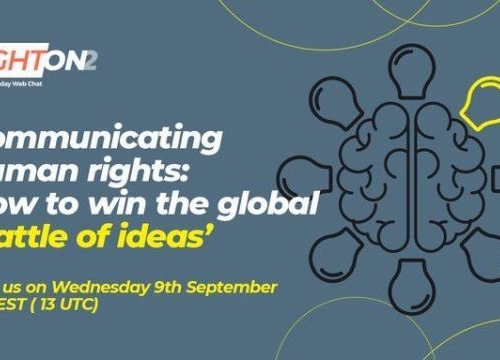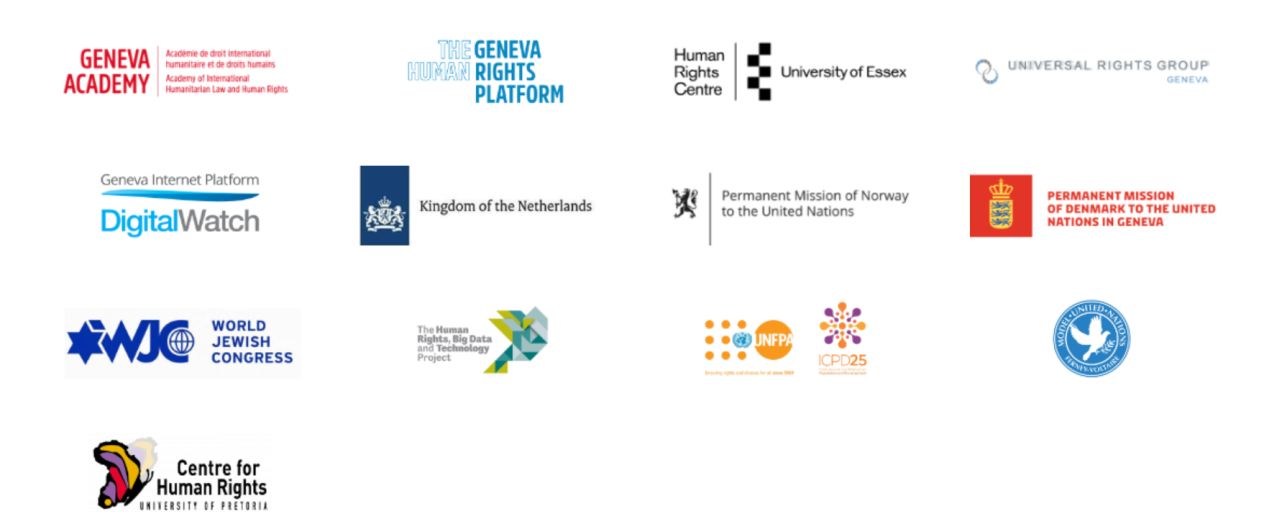Communicating Human Rights: How to Win the Global ‘Battle of Ideas’
Right On


Diplo Foundation
Pick up a newspaper, turn on the TV or flick through the latest Tweets on your feed, and chances are you will come across a multitude of stories about human rights. However, the vast majority of those stories will be focused on ‘negatives’ – the gross violation of rights in Syria or Myanmar; the threat to human rights posed by new technologies and the ‘surveillance State;’ strident criticisms from the US, Turkish, Hungarian or Chinese government officials about the United Nations (UN), the UN Human Rights Council or UN Special Rapporteurs; indignation that Venezuela or Saudi Arabia have won a seat on the Council during the latest elections; suggestions from the US Secretary of State that the Universal Declaration of Human Rights is no longer fit-for-purpose; and bleak warnings from leaders that human rights and democracy are being ‘rolled back’ around the world.
This partly reflects human nature and the 24/7 media/social media culture where ‘no news is good news’ or ‘good news is no news,’ and where interest naturally gravitates to the ‘negative.’ But this is also reflective of a crisis in confidence amongst the international human rights community, both in their own regard and, in a relative sense, in the context of the ‘global battle of ideas’ with the world’s populist and nationalist leaders, and others who reject universal values and supranational institutions.
To find out what to do about this situation, how we can fight back, and what role modern, professional communication techniques and strategies play in that regard, join us for the first web chat of Right On 2.0.
Moderators
- Marc Limon, Executive Director, Universal Rights Group
- Nataša Perućica, Researcher at DiploFoundation
Panelists
- Philip Alston, John Norton Pomeroy Professor of Law and co-Chair, Center for Human Rights and Global Justice at New York University School of Law
- Bruno Giussani, Chairman, Geneva International Film Festival on Human Rights (FIFDH) and Global Curator, TED
- Juana Kweitel, Executive Director of Conectas
- Friso Roscam Abbing, Senior Adviser on Strategic Communication, EU Agency for Fundamental Rights
Registration
To join the discussion, you need to register here.
‘Right On’: The Wednesday Web Chat
‘Right On’ is a new digital initiative – co-organized by the Geneva Academy, the Geneva Human Rights Platform, the Geneva Internet Platform, the DiploFoundation, the Universal Right Group, the Human Rights Centre at the University of Essex, as well as the Permanent Missions of Denmark, Norway and the Netherlands to the United Nations in Geneva – that will keep the human rights dialogue going during these COVID-19 times.
Every Wednesday at 15:00, experts and practitioners will discuss key human rights issues related to the current health crisis.
Video
Right On: Communicating Human Rights: How to Win the Global ‘Battle of Ideas’
Pick up a newspaper, turn on the TV or flick through the latest Tweets on your feed, and chances are you will come across a multitude of stories about human rights. However, the vast majority of those stories will be focused on ‘negatives’ – the gross violation of rights in Syria or Myanmar; the threat to human rights posed by new technologies and the ‘surveillance State;’ strident criticisms from US, Turkish, Hungarian or Chinese government officials about the UN, the Human Rights Council or Special Rapporteurs; indignation that Venezuela or Saudi Arabia have won a seat on the Council during the latest elections; suggestions from the US Secretary of State that the Universal Declaration of Human Rights is no longer fit-for-purpose; and bleak warnings from leaders that human rights and democracy are being ‘rolled back’ around the world.










